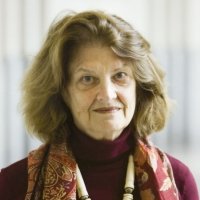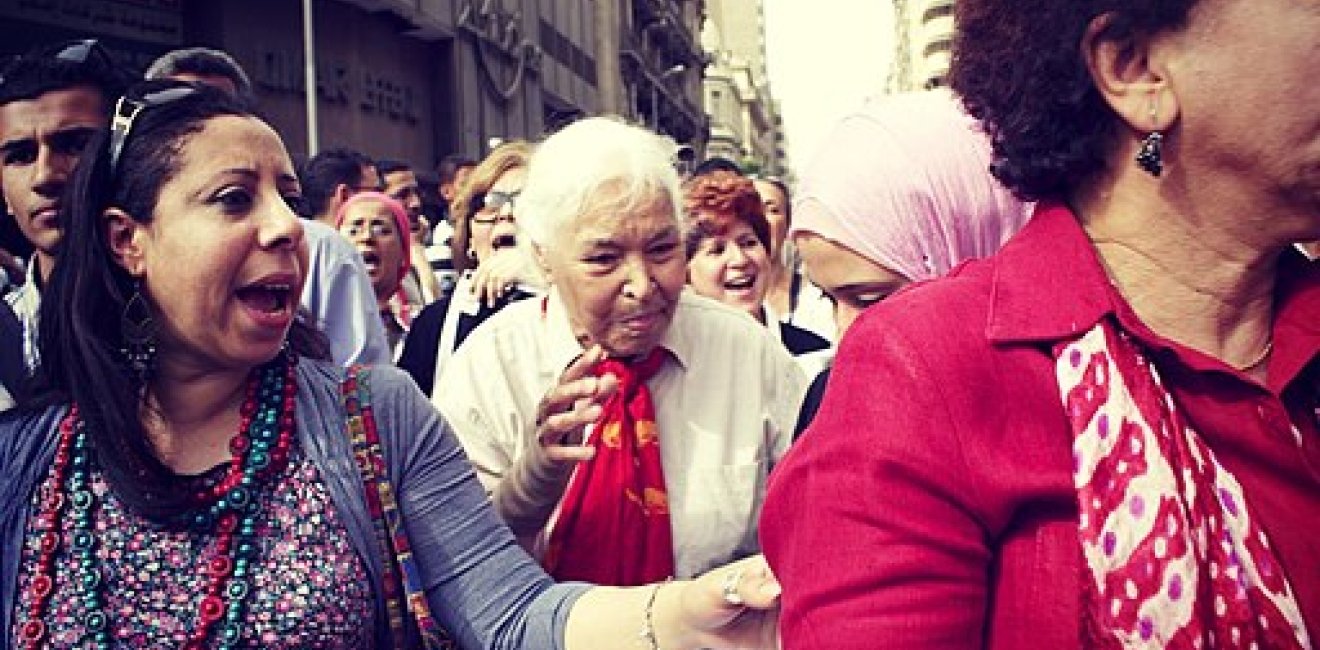
A blog of the Middle East Women's Initiative
Physician, writer, and activist, Egyptian Nawal El-Saadawi expressed her feminism in multiple registers. Her feminism spanned more than half a century and vast territory. Fearless and formidable she was a feminist without borders. I came to know Nawal during the heyday of second-wave feminist movements that erupted around the globe. We continued to meet in Egypt and America over the years up to the days of the 2011 Egyptians Revolution.
The public exposure of harms to women by the vigilant young medical doctor was so unsettling to authorities that they dismissed El-Saadawi from her position.
It was as a young physician witnessing the physical and psychological damage to women resulting from assaults on their bodies that pushed Nawal El-Saadawi through the door of feminism. She first became known as a feminist in Egypt and other Arab countries through Al-Mar’a wa al-Jins (The Woman and Sex) which she published in Beirut in 1972 espousing sexual injuries and injustices many Arab and Muslim women suffered. Al-Mar’a wa al-Jins became an instant cult book in the student democracy movement on Egyptian university campuses in the 1970s and an inspirational text of second-wave feminism in the 1980s in Egypt and neighboring Arab countries. The public exposure of harms to women by the vigilant young medical doctor was so unsettling to authorities that they dismissed El-Saadawi from her position in the Ministry of Health. She would never be given another official post. Thus, was launched her life of independent action.
El-Saadawi sprang to global fame as a feminist with The Hidden Face of Eve published in 1980 in London. It was a translation of Al-Wajh al-‘Ari lil-Mar’a al-Arabiyya published in 1977 in Beirut. The book was also my own introduction to Nawal. It combined stories of contemporary women’s lived experience with historical accounts of outspoken Arab women from the foundational days of Islam to first-wave Arab feminists of the early 20th century. The Hidden Face of Eve served as a template for Arab and Muslim women’s second-wave feminism that transcended the borders between the public and the private and, and linked the person and the political, drawing deeply from within women’s own Arab and Islamic past.The Hidden Face of Eve issued a call for political activism as Nawal exhorted women to liberate themes and their countries from internal and external ills and exploitation.
To support feminist pollinial work El-Saadawi, founded the Arab Women’s Solidarity Association (AWSA), officially established in 1985 after years of effort. AWSA became the epicenter of Arab feminism at a time when the forces of political Islam, or Islamists, were trying to rein in women. AWSA functioned as a site of knowledge-building and dissemination through its biennial conferences attended by Egyptians and other Arabs mainly from the new generations. AWSA adopted the slogan “Removing the veil from the mind” as a rallying cry for its inaugural conference in 1986. The proceedings were published the following year in Women of the Arab World. When I took part in the second conference on Contemporary Arab Thought and Women, I witnessed a strong display of camaraderie and mutual support.
After remaining in in exile for four years she bravely returned to a still perilous environment to resume the fight.
In the early 1990s Nawal hosted monthly nadwas or public seminars under the auspices of AWSA in downtown Cairo, welcoming journalists, writers, intellectuals, and political activist across the spectrum from feminists to leftists, and Islamists--women and men prominent in their professions and public life-- to engage in debate on the burning subjects of the day. In an increasingly polarized atmosphere, it was amazing that these gathering happened at all. They were edgy and contentious. I remember one stormy exchange over the highly politicized subject of veiling. I did not realize at the time how dangerous these meetings were until the assassination in 1992 of the outspoken journalists Farag Foda who frequented the nadwas. The following year when Nawal discovered that her name was on an Islamist death list she left the country. After remaining in in exile for four years she bravely returned to a still perilous environment to resume the fight.
The last times I saw Nawal were during the years following the outbreak of the 2011 Revolution in Egypt, when she could be found in Tahrir Square and halls throughout the city, speaking to large gatherings of the latest waves of youth. In those years she also continued her life-long habit of sharing her feminist vision and concerns globally in short trips abroad, returning quickly to the of her work.
Author

Honorary Fellow, Prince Alwaleed bin Talal Center for Muslim Christian Understanding, Georgetown University

Middle East Program
The Wilson Center’s Middle East Program serves as a crucial resource for the policymaking community and beyond, providing analyses and research that helps inform US foreign policymaking, stimulates public debate, and expands knowledge about issues in the wider Middle East and North Africa (MENA) region. Read more


Middle East Women's Initiative
The Middle East Women's Initiative (MEWI) promotes the empowerment of women in the region through an open and inclusive dialogue with women leaders from the Middle East and continuous research. Read more

Explore More in Enheduanna
Browse Enheduanna
Women are the Catalysts for Change in Lebanon

How Education Can Empower Young Women in MENA


